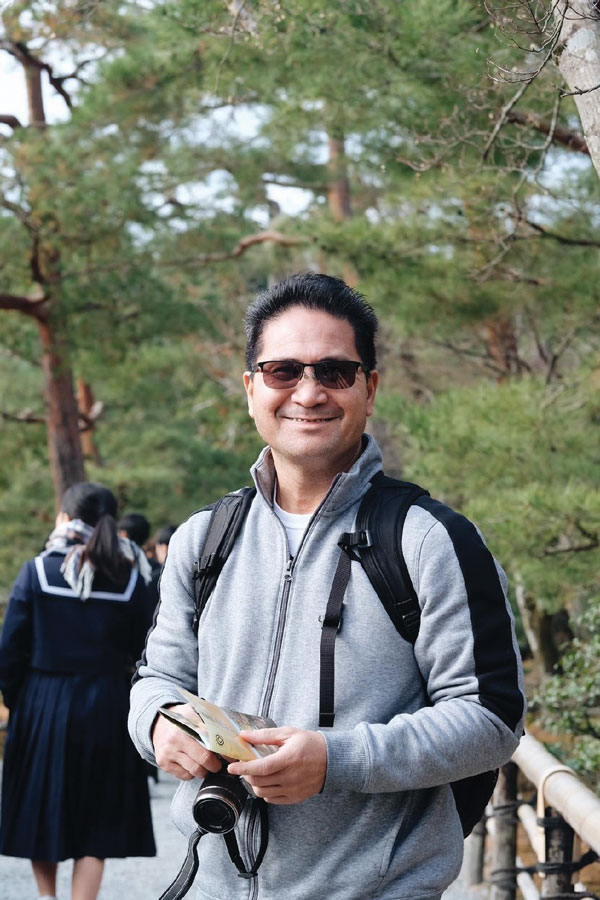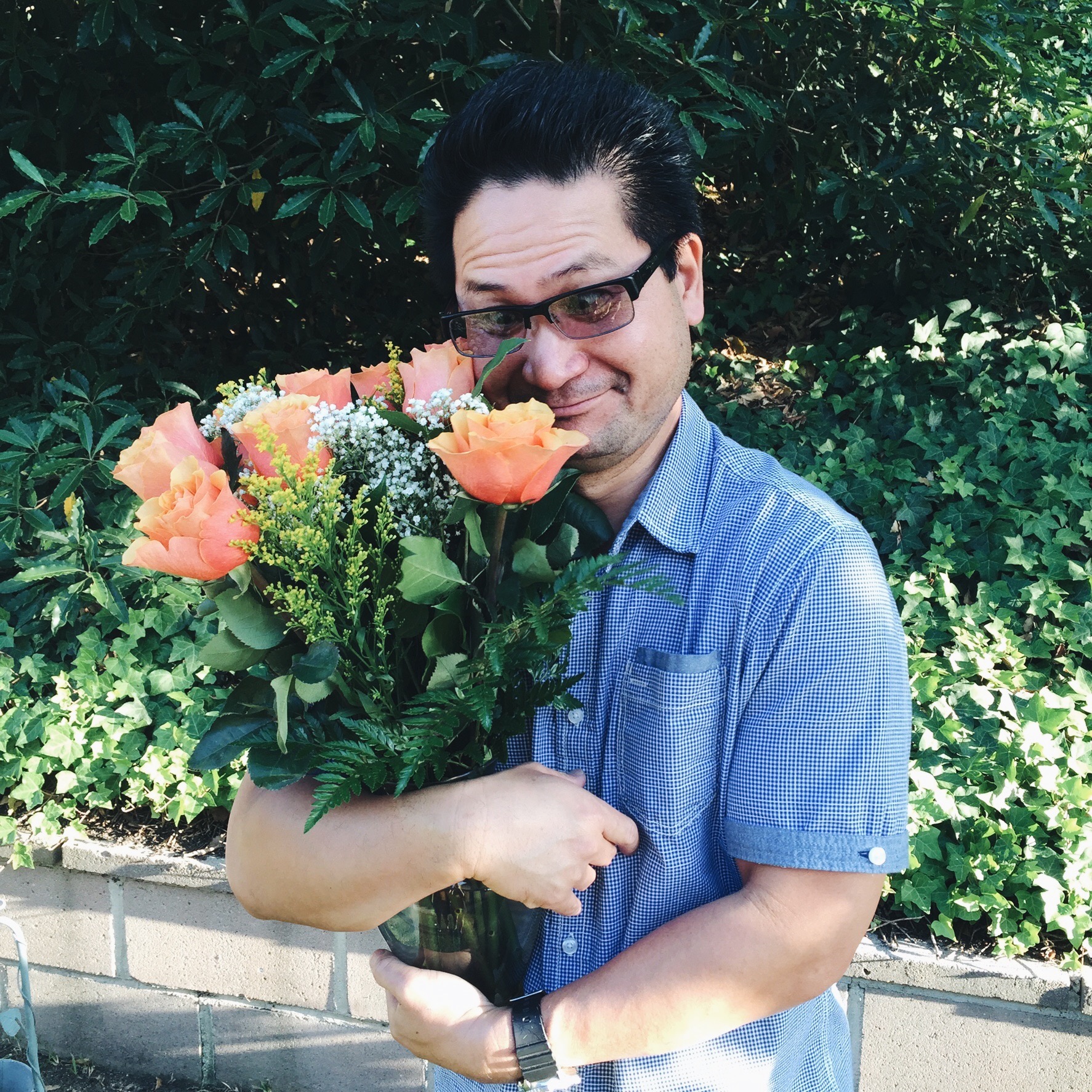
Angelo and Marilou Cortes planned to celebrate their 30th wedding anniversary with a trip to Europe in June. However, the coronavirus took Angelo’s life, and along with it, their travel plans.
Cortes, a 58-year-old design engineer and father of two from La Habra, California, died on April 10 from complications related to COVID-19.
“My dad was the most amazing husband to my mom. He was her rock and best friend. It’s very tough on her. Their relationship definitely inspired me,” his daughter Angelica Cortes, 26, told the Asian Journal.
When Angelo Cortes would come home from work, he gave his wife, daughter, and son Sean his undivided attention.
“He was the ultimate father figure to us. He did a good job separating work from home. We didn’t really know much about his job and what he did because when he would come home, he would change gears into being a dad and a husband,” Angelica said.
Angelica — a registered nurse at PIH Health Whittier Hospital, where her father eventually spent three weeks as a patient — kept a timeline of his illness that began on March 13 when he first complained about itchiness on his chest and what could be perceived as a cold or seasonal allergies.

As this was around the onset of the COVID-19 outbreak in Southern California, Angelica and Marilou, a nurse educator at the same Whittier hospital, advised Cortes to wear a face mask and they would observe his symptoms.
By the following day, Cortes developed a fever and persistent cough so they isolated him in a separate bedroom. When his temperature wouldn’t go down — with the highest being 101.6°F — his primary doctor prescribed him with azithromycin, an antibiotic also known as Z-Pak, but he wasn’t improving, which signaled that his condition wasn’t a bacterial infection.
Three days later, the family took Cortes to urgent care, where he underwent an X-ray exam that showed evidence of bronchitis. But, he wasn’t qualified to get tested for COVID-19 so he was sent home and continued to be in isolation.
“At that point, my mom and I were like, ‘You know what? This might be the coronavirus,” Angelica said. “Even though they’re saying it’s bronchitis, it can be the start of it.”
By March 19, Cortes started breathing faster and was brought to the emergency room, where he was swabbed and tested negative for respiratory syncytial virus. A chest X-ray then revealed that he had pneumonia, which led to his admission that same day to the respiratory floor of PIH Health Hospital. Still, he did not qualify for a COVID-19 test.
A doctor then ordered a test privately and sent it to a lab but didn’t receive the results until a week later.
“On Sunday the 22nd, my dad was intubated before he got his results back,” Angelica said. “But based on his scans, like the CT of the chest, it pretty much showed severe viral pneumonia and it showed ground glass opacities so that’s why the doctors kind of knew it was COVID-19 or they were leaning more towards it based on the findings.”
Doctors intubated Cortes early on to save his lungs. In the next three weeks, his liver, lungs and kidneys started to fail, and he received daily dialysis.
Each day was a “rollercoaster of emotions,” Angelica recounted, as the family got regular updates from the hospital. Though they were not able to directly communicate with Cortes anymore, Angelica said that he could still hear and respond to verbal cues by squeezing the nurses’ hands so she would tell them to relay messages that his family loved him.
“It was definitely a hard three weeks not being able to talk or be with him. But what I actually did was text his phone every single day. I feel like that kind of helped me,” she said.
Days before Cortes ultimately passed, there was a glimmer of hope that he could be discharged as he showed signs of improvement. But another CT scan of his brain illustrated that he had multiple strokes and hemorrhaging.
“At that point, the intensivist came to the conclusion that he was essentially brain dead or very close to it. Considering the multiple organ failure, we just all decided that it was best to call it there,” Cortes’ son Sean, 28, said.
A neurologist took another look at Cortes to exhaust all options and do more tests, which showed that he had no brain activity. This last word confirmed that it was time for Angelica and Sean to say goodbye to their father.
On the day Cortes was taken off the ventilator, the family was allowed into the hospital and see him from the glass outside of his room. Many families who have lost loved ones to the pandemic have not been able to have this final moment because of strict distancing measures.
The family does not know how or where Cortes contracted COVID-19 as he was working and doing other daily activities up until the first sign of sickness on March 13. But they speculate that his history of childhood asthma and hypertension could have contributed to the severity of his case.
Apart from the usual guidelines of wearing a face mask and washing hands, Cortes’ family said it’s important to be aware of the main symptoms of COVID-19 to spot if a relative may be infected.
“Acting fast can save a lot of lives or at least give your loved one time to fight,” Sean said. “That’s what we’re most appreciated of with my dad because the doctors and nurses bought him so much time.”

Cortes, who was born in Mandaue City, Philippines, came to the United States in 1973 at the age of 10. He went on to study mechanical engineering from Cal State Long Beach and worked for a company that designed commercial kitchen equipment until his death.
Both Angelica and Sean said they want Cortes to be remembered as someone who kept a smile on his face and was a jokester. He rarely got upset and when he did, they knew it must be something serious.
He took an interest in his children’s activities and would watch their games or dance performances no matter how far the drive. It got to the point when they told him that he didn’t have to watch every show.
“We’ve been trying to think about my dad’s main hobbies and really what we can remember was that he spent so much time on my sister and myself. For every extracurricular activity we were part of, he participated in,” Sean, a computer programmer, said.
Sean and Angelica were active in their high school’s Filipino cultural club and said that their father volunteered to host weekend rehearsals at their home and helped with designing props and costumes for the annual show.
Cortes was also an avid Lakers fan and liked recreational cycling and fixing things around the house.
A GoFundMe page set up by Angelica’s co-workers to help with expenses has raised over $43,000 to date. Despite not being able to grieve with relatives and friends, the messages, cards, flowers and food that people have sent are giving Cortes’ family some ease that they are not alone.
“At first, we felt like we were alone, but we know that we have literally hundreds of people supporting us during this time,” Angelica said. “At the same time what also kind of brings us comfort is knowing that we’re not going through this alone. There are so many other families that are going through the same situation.”
Once stay-at-home orders are lifted, Cortes’ family is planning to have a proper memorial for him so extended family can join.
In addition to his wife and children, Cortes is survived by his father, Felix Cortes; brothers, Jessie “Nilo” Cortes and Felix “Jun” Cortes Jr.; and sisters Frances Impert, Janet Gutierrez and Susan Alday. He was predeceased by his mother Angeles in 2013.
It’s been two weeks since Cortes’ passing but his children continue to hear his laugh and his daily encouragements, including “You can do it, Aiks,” referring to his nickname for Angelica.
“He would say this almost every day, but multiple times in the morning on days I had work since he knew how stressful some of my shifts could get,” Angelica said. “My dad passing is another one of those obstacles thrown at me in life, and I can still hear him saying ‘You can do it, Aiks!’ to remind me that although he is no longer here with us, we will still be okay.”
**
Editor’s note: The Asian Journal is working to document those of Filipino descent who have lost their lives because of the coronavirus in the United States. If you know of someone or would like to offer a remembrance of someone who has died of COVID-19, please tell us about them by emailing digital@asianjournalinc.com with the subject line “Remembering Lives Lost.”






